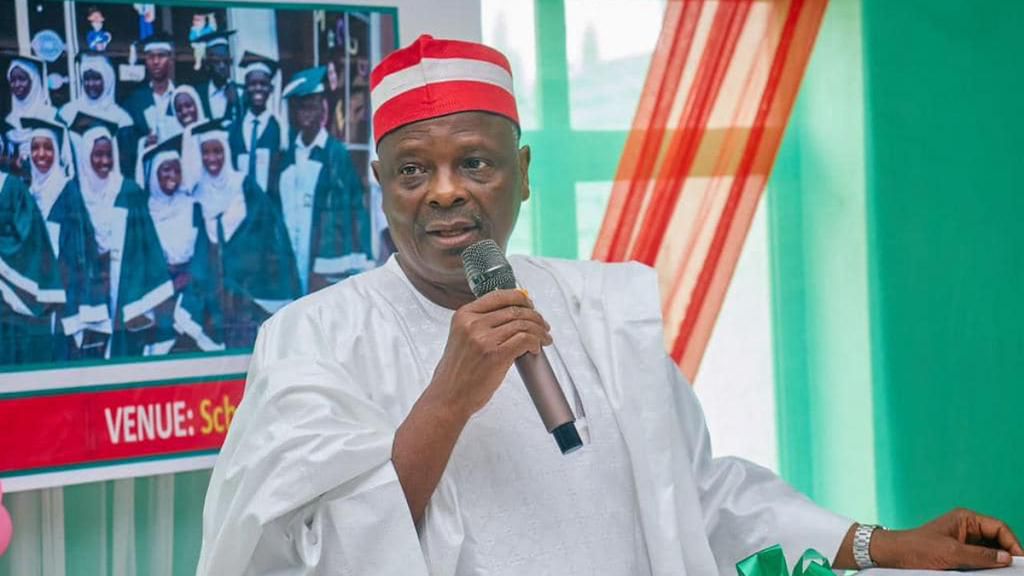Kwankwaso will contest 2027 Presidency - NNPP dismisses rumoured defection to C

NNPP Denies Kwankwaso's Alleged Defection Plans, Affirms 2027 Presidential Ambition The New Nigeria Peoples Party (NNPP) has refuted widespread speculation that its national leader and 2023 presidential candidate, Rabiu Musa Kwankwaso, is considering defecting to the ruling All Progressives Congress (APC). The party maintains that Kwankwaso remains committed to the NNPP and will contest the 2027 presidential election.
NNPP Dismisses "Baseless" Defection Rumours Prince Nweze Onu, the NNPP's National Vice Chairman for the South-East, addressed the rumours, dismissing them as unfounded and fueled by social media misinformation. He emphasized that the reports lack substance and are primarily circulating online. "Talks about Kwankwaso moving to the APC only exist on social media," Onu stated. "The use of artificial intelligence and other instruments of social media is very dangerous and makes people spin a lot of narration, especially when it comes to politics."
Clarification on Presidential Villa Visit Onu further clarified the context of Kwankwaso's recent visit to the Presidential Villa, stating that it was unrelated to any potential defection negotiations. According to Onu, Kwankwaso attended a specific program held at the Villa, which explains his presence alongside President Bola Tinubu. "No, he didn’t go for any visitation. He only went there for a programme. The only reason both of them were seen together was because the programme was held at the Presidential Villa," Onu explained.
Kwankwaso's 2027 Presidential Aspirations Confirmed The NNPP has unequivocally confirmed that Kwankwaso will be a candidate in the 2027 presidential election. This declaration aims to quell speculation and solidify the party's position regarding its leadership and future political endeavors. "Why not? That is what we are saying. For as long as he is a Nigerian and he meets the statutory requirement to aspire to vote and be voted for, he is good to go," Onu affirmed.
Context: 2023 Election and Political Landscape Rabiu Musa Kwankwaso contested the 2023 presidential election under the NNPP, securing a notable number of votes and establishing the party as a significant political force. His performance highlighted the growing desire for alternative political platforms and challenged the dominance of the APC and the Peoples Democratic Party (PDP). The current political climate is characterized by ongoing debates about governance, economic policies, and regional development, setting the stage for a potentially dynamic 2027 election cycle.
Expert Perspective: The Role of Third Parties Dr. Adebayo Williams, a political analyst at the Center for African Studies, notes that the emergence of strong third parties like the NNPP is crucial for a healthy democracy. "The Nigerian political landscape has historically been dominated by two major parties, often leading to a lack of diverse perspectives and policy options. The NNPP's performance in 2023 signifies a potential shift towards a more multi-party system," Dr. Williams observes. He cautions, however, that for the NNPP to remain competitive, it must focus on building a strong organizational structure and articulating a clear and distinct policy platform.
APC's Focus on 2027 and Opposition Concerns Onu criticized the APC for allegedly being overly preoccupied with the 2027 elections, suggesting that this focus might be detrimental to effective governance. He accused the ruling party of desperation and implied that their actions are driven by anxieties about the upcoming political contest. “They are just too desperate. Their attempt to do too much is what is pushing them into depression,” he said.
Historical Context: Defections in Nigerian Politics Political defections have been a recurring feature of Nigerian politics, often driven by factors such as the pursuit of political opportunities, ideological shifts, or internal party conflicts. Instances of high-profile politicians switching parties have shaped the political landscape and influenced election outcomes. The NNPP's strong stance against Kwankwaso's rumored defection reflects a desire to maintain party unity and project an image of stability amid a volatile political environment.
Originally sourced from: pulse Ng
